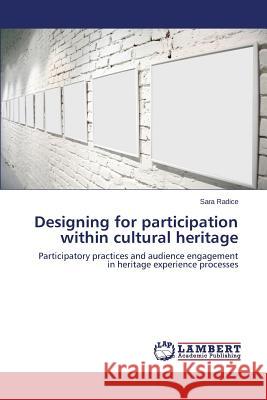Designing for participation within cultural heritage » książka
Designing for participation within cultural heritage
ISBN-13: 9783659178054 / Angielski / Miękka / 2015 / 316 str.
The emergence of new patterns for culture transmission opened to new possibilities for participatory approaches in the design of heritage experiences. The research on which this book is based has the overall aim to envision novel paradigms for audience engagement within heritage, starting from the hypothesis that visitor's active participation might enhance the experience of heritage, while responding to audience expectations. The book investigates the emerging role of cultural institutions, which are increasingly becoming facilitator of experiences around content, often supported by the potential that digital technologies have in enabling novel practices of audience engagement. Through the study of cases, the research identifies emerging design approaches within heritage, exploring both projects in which participation is the final outcome of the design process, and projects based on participatory design methods. The aim is outlining a design framework that, relying on the insights drawn upon literature search and case study, might enable practices of heritage valorization capable of catalyzing the multiplicity of the voices involved in the process.
The emergence of new patterns for culture transmission opened to new possibilities for participatory approaches in the design of heritage experiences. The research on which this book is based has the overall aim to envision novel paradigms for audience engagement within heritage, starting from the hypothesis that visitors active participation might enhance the experience of heritage, while responding to audience expectations. The book investigates the emerging role of cultural institutions, which are increasingly becoming facilitator of experiences around content, often supported by the potential that digital technologies have in enabling novel practices of audience engagement. Through the study of cases, the research identifies emerging design approaches within heritage, exploring both projects in which participation is the final outcome of the design process, and projects based on participatory design methods. The aim is outlining a design framework that, relying on the insights drawn upon literature search and case study, might enable practices of heritage valorization capable of catalyzing the multiplicity of the voices involved in the process.











